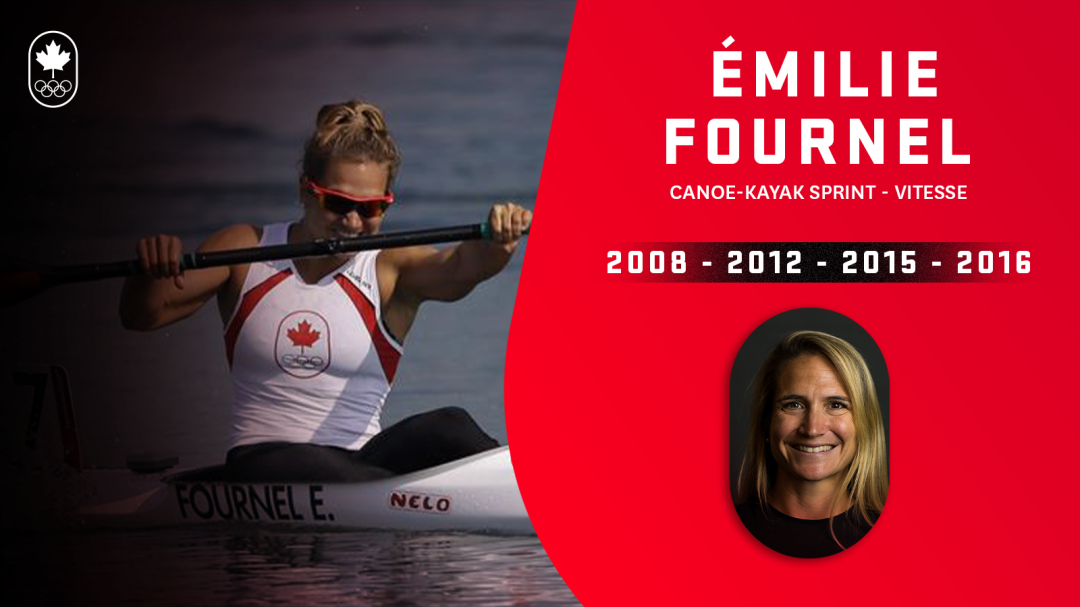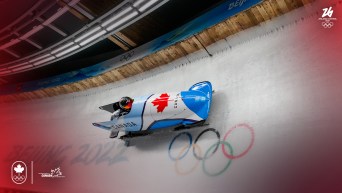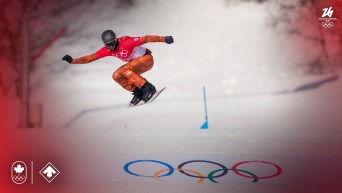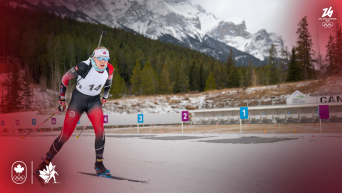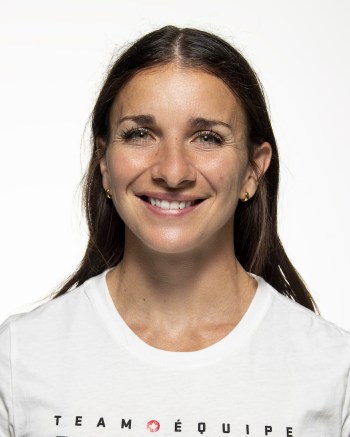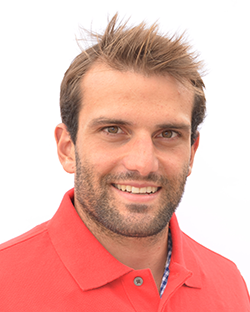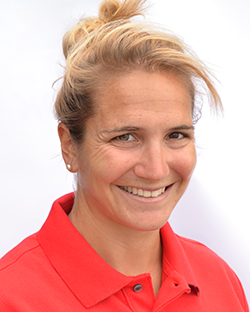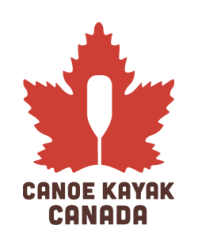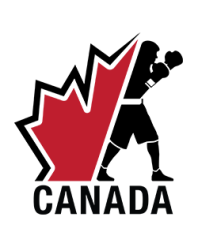Team Behind the Team: Kayaker carries on her father’s legacy on and off the water
The Canadian Olympic Committee (COC) is proud to put athletes at the heart of everything it does. At all levels of our organization, from our Board of Directors to our interns, our team is comprised of people who truly believe in the power of sport – including an impressive group of Olympians, Paralympians, Pan American Games athletes, former national team athletes, rec league athletes, and passionate sport lovers. In this series, we’ll share stories from members of our team who have competed at major multi-sport Games and who are now dedicating their professional lives to helping the next generation of Team Canada athletes live their dreams.
Émilie Fournel participated in three Olympic Games, twice on the same kayak team as her brother Hugues. Émilie won several World Cup and World Championship medals as well four Pan American Games medals with many career highlights, including gold in the K4-500m crew in front of the hometown crowd at the Toronto 2015 Games. Émilie is now Manager of Athlete Marketing and Olympian Legacy at the COC.
This interview has been edited for length and clarity
Tell us a little bit about yourself and your upbringing?
I am someone who just loves summer. I love being outside, working hard, and being close to the water. Growing up in Montreal, I was fortunate to live close to Lake St. Louis and to the Lachine Canal on the West Island. My dad, Jean, was an Olympian himself who raced on that same canal as he was training for the 1976 Olympics.
I made the national team when I was just 15 years old. I went to my first training camp in Halifax and at that time I didn’t speak much English. I remember the first time I sat in a kayak was when I was just six or seven years old. You know as a child you are always being told what to do. ‘Don’t go there, don’t do this, stop at the stop sign.’ In the kayak, you’re sitting there by yourself. You’re the captain of the boat. You decide to go left or right. It’s calming and provided me with a sense of freedom.
That sense of calmness was tested when you were just 11. Tell us what happened?
I lost my dad as a kid. I was only 11. It was such a difficult time. But that experience taught me that you can find the good even in the worst situations. Later in my career if I had a poor race or bad training, I could find the positive side in almost anything.
My dad was so influential to me. He was a legacy of the 1976 Olympics. He was part of this program to have local people from Montreal participate in the Games.
At the time, I was young, so I didn’t really appreciate everything that was happening. But now when I look back, my dad was a bit of a superhero. Him and my mom started a canoe club in Pointe Claire where I live now. They wanted to get more people into the sport. We always billeted people so they could take part. When my dad got sick with leukemia, everything happened so quickly. The cancer struck so fast. We were so little, but everyone in the sport tried to protect us. We found great comfort in the way the sport community rallied around us.
How did that manifest itself after your dad passed away?
When I qualified for my first Olympics, the race was the Pan Am Championships here in Montreal on the Olympic basin, where my dad had raced at the 1976 Olympics. At the time I was 18 or 19 years old. I went through hard training knowing my dad had gone through the same thing years before. There were all kinds of questions I would have liked to have asked him about how best to prepare for the moment. I was a teenager. I was thinking that I don’t really know how to do this. I remember lining up on the starting line at the Olympic basin and some of his teammates that he raced with were on the sidelines cheering me on. That was a powerful moment for me. Many people came up to me after I qualified and brought me photos from the 1976 Olympics and told me stories about my dad. We were standing on the same dock where he competed. It all just felt surreal.
You had a long and successful career in the sport. How did you end up at the COC?
I lit the cauldron for the opening of the Quebec Games as a teenager and then carried the flag for Quebec at the Canada Games in 2001. I had the chance to go to three Olympic Games, two of them with my brother so there were many special moments. Unfortunately, I didn’t race the way I would have liked at the Olympics and my results there don’t reflect the full potential that I had. Over my career, I won several World Cup and World championship medals.
But my experience taught me that there is another side to an Olympic medal. I didn’t win my medal but what I got instead was the chance to see the impact sport can have and how powerful it could be to help me through one of the most difficult times in my life. When I retired, I took on a couple of different jobs before I was fortunate to get the role I now have at the COC. I now get a chance to make sure that the athletes are not just the results on a piece of paper. I help connect them to opportunities where they can tell their stories, or they have different outlets outside of the field of play.
I get to help Olympians build things in their communities, help them create the legacy they want to leave behind and pass on what they’ve learned to the next generation through different programs that we have. It’s a bit of a full circle moment to be in this position because once again, I get to see the power sport has to change lives.
Tell me about your role and what exactly you do in your day-to-day job at the COC.
On the athlete marketing side, our team oversees any athlete request that would come to the COC for athletes, for engagements that are again outside the field of play. It could be anything from a community or a school engagement all the way to a government or corporate event. We’re like the middlemen trying to connect Olympians with the right opportunity, balancing performance demands with opportunities for as many Olympians as possible to share their stories.
On the Olympic legacy side, we have what are called OLY grants where Olympians can apply for grants that help them start or enhance projects they are involved with in their communities. This program, now in its sixth year, is very meaningful for me. I think as Olympians, we have the chance to chase our dreams. This is a way to give back to spread what you’ve learned to the next generation and to the broader community. No one becomes an Olympian on their own. There are so many people that rally behind every single Olympian, and I think this is a beautiful way for them to give back.
How would your dad feel knowing what you’ve been able to do, not only in sport, but in your career outside sport?
Now you’re going to make me tear up but it’s ok, they would be tears of joy. In the 20 years I was involved in my sport, no one ever talked to me about my dad’s results or how fast he could go in a kayak. What people shared with me was how hard working my dad was for the sport; how generous he was with his time and how he was always there to give a helping hand.
For me, as much as I wanted to win an Olympic medal, what really drove me was that sense of purpose and being part of a special community. I have a job now at the COC that is linked to all of that. I recently started a nonprofit to give more people in Montreal access to the water like I had. Now, I am getting goosebumps just thinking about this but all of these things I feel would be the accomplishments that would make my dad most proud.

